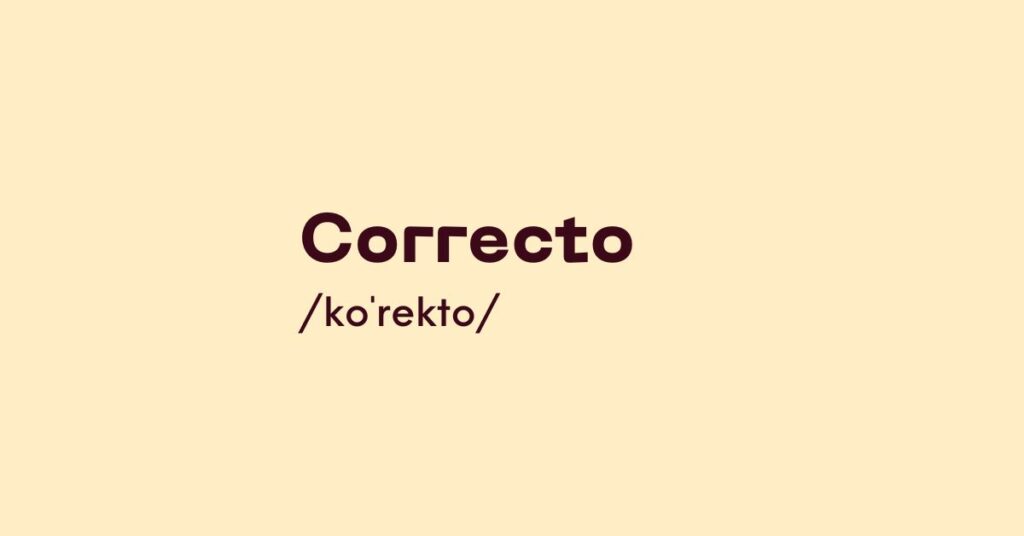Today’s Spanish word of the day is “correcto” in the masculine form, or “correcta” in the feminine form.
If you hadn’t guessed, it’s an adjective meaning “correct”.
It can also mean “polite” or “proper”, in the sense of being well-mannered, or “honest”.
Like the English word “correct”, it comes from Latin correctus meaning “put straight”.
Example sentences
Tu respuesta es correcta.
Your answer is correct.
¿Es correcto decir eso en español?
Is it correct to say that in Spanish?
No siempre es fácil saber qué es lo correcto.
It’s not always easy to know what is right.
Es correcto decir que soy un experto en procrastinación; lo probaré mañana.
It’s correct to say I’m an expert in procrastination; I’ll prove it tomorrow.
No es correcto hablar con la boca llena.
It’s not polite to talk with your mouth full.

